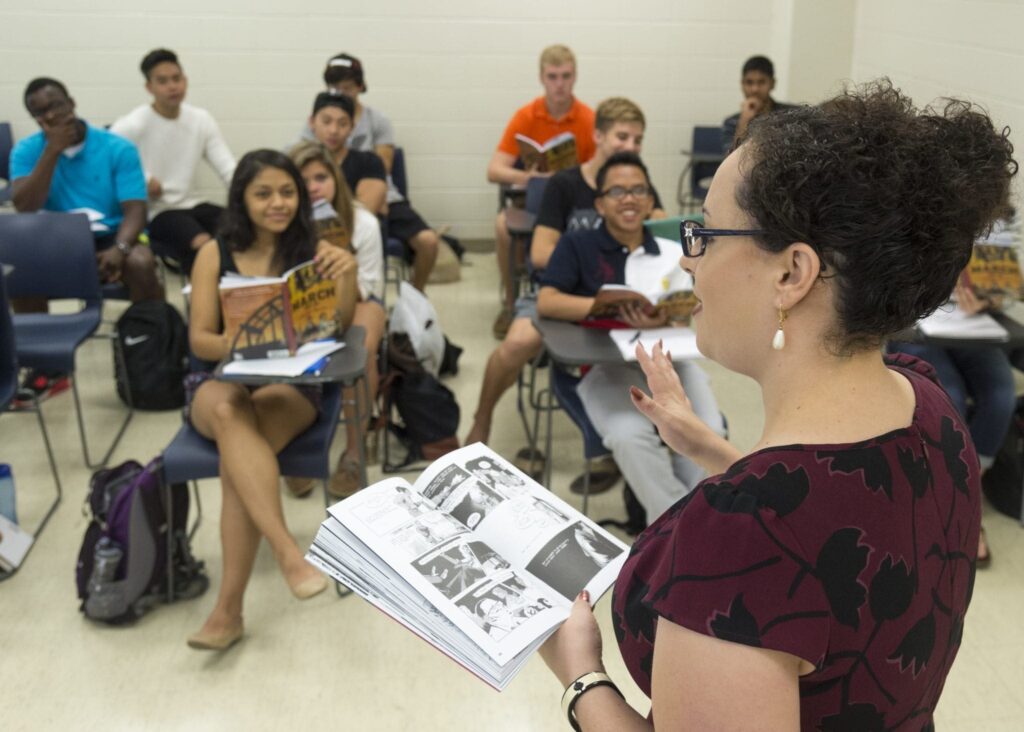I’m a Houston Teacher, and I Support Houston ISD’s Step Toward Excellence
Embracing this change will help create a culture of growth, innovation, and success for all involved

As a teacher, I have witnessed firsthand the profound impact an educator can have on a student’s life. I understand that teaching requires continuous professional growth. This is why I strongly support a robust teacher evaluation system — not as just another requirement but as a valuable tool that helps us become more effective educators for our students.
Some people see teacher evaluations as a formality or as a punitive measure; neither approach serves the best interests of teachers nor benefits the students we teach. We need an evaluation process that faithfully supports teacher growth by providing substantive feedback, identifying areas for improvement, and offering resources to help us better meet the needs of our students.
I’m optimistic about the new Houston ISD teacher evaluation system. While change is never without challenges, this initiative represents a significant step forward in ensuring educational excellence. The proposed model prioritizes student success and empowers teachers to improve their skills by focusing on real-time feedback and professional development.
The new system includes “spot observations” that will provide teachers and campus leaders with actionable data about their instructional practice and how that practice impacts student learning — which accounts for 45% of a teacher’s summative evaluation rating. To ensure the process is fair and consistent, targeted evaluator training and a Teacher Evaluation System (TES) Certification process will ensure rater reliability when providing scores, feedback, and insights.
One of the most promising aspects of this system is its emphasis on on-the-spot coaching. This approach involves the evaluator, or another administrator, observing and providing immediate feedback. The goal is to quickly refine and improve instructional techniques, ultimately benefiting student learning and achievement. When teachers receive timely, constructive feedback, they can adjust their strategies immediately rather than waiting for an end-of-year review that may not yield immediate improvements.
The collaboration between the appraiser and teacher fosters mutual trust and professional dialogue, ensuring that feedback aligns with the teacher’s strengths and areas for growth. By engaging in open communication, teachers can feel more supported and empowered to experiment with new strategies, refine their instructional methods, and ultimately enhance student learning outcomes.
The new evaluation system also boosts professional development in a way that is both practical and tailored to individual teacher needs. Unlike traditional evaluation models that often focus solely on compliance and annual assessments, this system encourages continuous improvement through ongoing support and insights. Teachers are not left to decipher feedback but are given direct, actionable insights that help them grow within their profession. The system ensures that educators have the tools they need to meet the diverse needs of their students.
Effective teaching is complex. It extends beyond content expertise and involves engaging students, accommodating diverse learning styles, and creating a classroom where every student feels valued and supported. Without comprehensive evaluation systems, how can we assess whether students’ needs are being met? How do we ensure struggling educators receive timely assistance before student learning is compromised?
When implemented with a supportive mindset, on-the-spot coaching should not be viewed as punitive pressure on teachers but as an opportunity for professional enrichment. Schools that have adopted similar systems have reported increased teacher satisfaction, higher student engagement, and improved academic outcomes. When teachers feel supported rather than judged, they are more likely to embrace feedback and implement innovative teaching practices.
Real-time coaching aligns with the Houston ISD’s mission to provide every student with a high-quality education; through investing in teachers’ success, the district is investing in students’ futures. A system that promotes adaptability and immediate instructional improvements is far superior to outdated models that rely on delayed feedback and rigid evaluation cycles.
I aspire to excel as an educator. I want my fellow teachers to have access to the support they need to enhance their practice. Above all, I want my students to receive the quality education they deserve. Meaningful teacher evaluations aren’t about penalizing teachers — they’re about ensuring every child benefits from high-quality instruction.
I urge HISD to adopt the new teacher evaluation system and to ensure a system of continuous improvement for this model. I call on all teachers and Houstonians to join me in supporting this evaluation system. Embracing this change will help create a culture of growth, innovation, and success for both students and teachers.
Monica Hill is a Houston ISD Secondary Science Teacher and Teach Plus Fellow. She lives in Conroe, Texas.